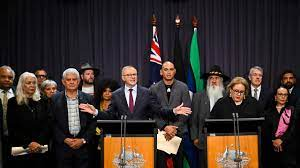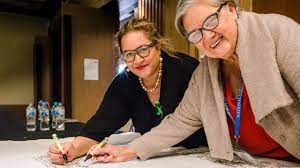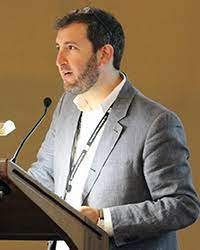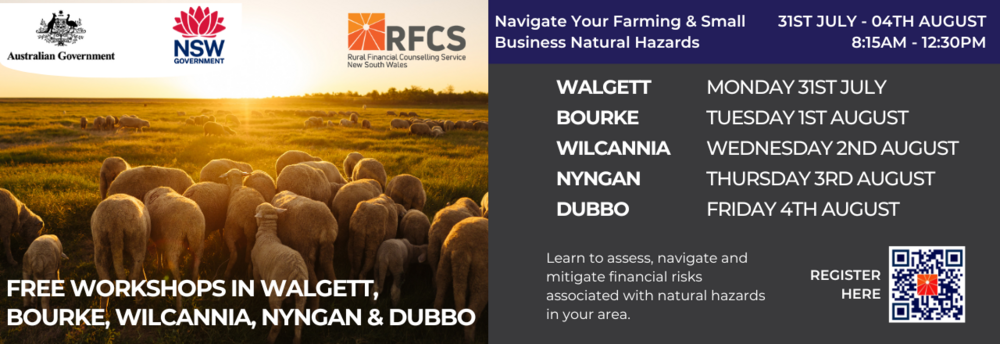The Voice: Supports for yes vote dips in Regional Australia
Luke Williams
12 July 2023, 9:40 PM
 Image: ABC.
Image: ABC. It was described as the tipping point - the June poll by nine newspapers; it was the first poll to give the No a majority in the Voice referendum.
It meant the Yes vote had slipped from 58 to 49 percent over three months.
Now a new poll by Australian Community Media found that in the regions, the 'no' vote was 57 percent, and the 'yes' vote was 35 percent, with eight percent undecided.
It also found 72 percent of respondents felt the federal government needed to do more to explain the Voice and how it would work.
Men from regional Australia were more likely to vote 'no' than women, with 65 percent of male respondents signaling their opposition to the Voice against 45 percent of women.
At the beginning of the campaign, more than 70 percent of Australians said they were inclined to vote yes.
"Referendums in this country aren't easy to win, so we knew that the numbers were going to tighten over time," a spokesperson from the Yes23 campaign told the Western Plains App.

Image: SBS
Indeed of the 44 referendums held in Australia, only eight have passed.
"We knew that this debate would become contested and that the conversation has been bogged down in Canberra in politics, in a fair bit of negativity there. That phase has come to an end, and so we're now focused on having conversations in communities around Australia," the Yes 23 spokesperson said.
The Uluru Dialogue leaders, Pat Anderson and Megan Davis recently said they had held "countless meetings and conversations" with First Nations people and non-Indigenous Australians in the hope of solidifying support in regional and rural Australia.
"Just in the past few weeks we've been in Atherton, Barunga, Cooktown, Dubbo, Gilgandra, Innisfail, Kuranda, Mossman, Mudgee, Narromine, Nyngan, Perth, Port Douglas, Sydney, Trangie, Wellington, Warren, Weilwan (Gulargambone), and the West Kimberley," Anderson and Davis said in a joint statement.

Pat Andersen (far right). Image: UNSW.
"Our faith in the Australian people remains as strong as ever."
"We are finding that when we sit down with people and explain the difference that the voice will make – where so many other initiatives and ideas devised within the Canberra bubble have failed – they are more than ready to vote yes."
The federal government is on track to hold the referendum in the last quarter of 2023.
The Voice to Parliament will be able to advise Parliament and the government on issues affecting Aboriginal and Torres Strait Islander people.
The referendum's success depends on majority support across the country and in four of six Australian states.
A Resolve Strategic poll last week showed support for the Voice dropping from 53 to 49 percent, with the Yes vote below 50 percent in Queensland, Western Australia and South Australia.
There's some speculation Australians will vote on October 17.
"I think part of the reason support is dipping is that there was no organized "no" campaign when the referendum was first talked about," Ron Levy, Associate Professor at the ANU College of Law, told the Western Plains App.

Ron Levy. Image: ANU.
Levy, who specializes in constitutional law, politics, and deliberative democracy, says that there has been a lot of misinformation published or stated about the Voice by no campaigners and in the media.
"We have either people finding out more about the voice and not liking it or getting misinformation - I lean toward the latter."
"For instance, people are coming to believe that the Voice can take away private property rights, and that is just wrong."
"Anything that says the Voice will, and then they cite a certain law or policy that is wrong. Any time the Voice will do something, they misunderstand that the Voice is an advisory body. People seem to think that the Voice will have the same power as the legislature or executive or judiciary. There is a great deal of noise and misinformation," he argued.
"Part of it is coming from people inside of government, and some of it is coming from the media. A lot of this is on Twitter, a lot of it is coming from newspaper columnists. These statements about how this will create or eliminate indigenous sovereignty are plainly not true".




